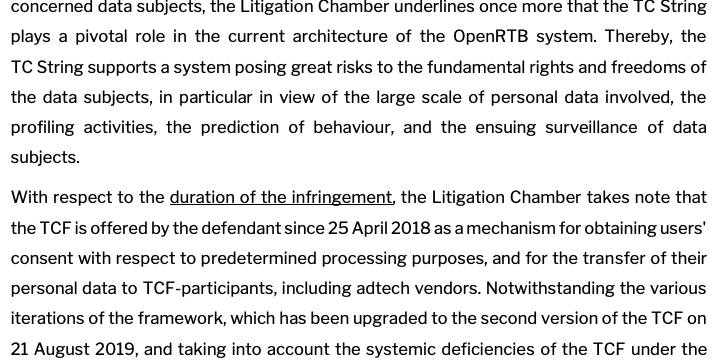


The thing is that sooner or later we will be forced into such a system. The problem is that it is hard (but not impossible) to do this the right way and it would be a very powerful thing to have for everybody. But getting it wrong will have horrible consequences. From this article it looks like the legislator lack required expertise or will to for the right solution that would basically empower people with control of their data and make tracking not feasible.
“lifelong identifier to their users’ identities” is obviously not needed for any company and that will defeat any privacy mechanism since companies will cooperate to piece together a full profile (as they do today).
Ah, the infamous “many eyes argument” :D That may be true for the Linux kernel but not so much for the bottom 99% of packages in the repos… Also a missing bit is that Linux is secure because software running on in is open source and comes from official and moderated repositories.
Once Linux gets popular and commercial developers start pushing flatpacks and what not this will end and Linux distros are way less hardened against insider threat than other OSes are (especially Android). Not to mention people using Linux are more technically inclined than Windows users basically by definition.
On one hand I would like to see grater adoption of Linux, I thing it would be good for everybody in general. But on the other hand I selfishly like the status quo, where criminals have a nice target painted for them and I can stay a safe distance away and enjoy the (shi*)show…
Yeah, that has been long coming. I wonder if this will make any real effect. Looks like GDPR is in fact dead to big tech; organisations that are responsible for enforcement of it do all they can to not cause any problems for big tech. Also other rulings of CJEU related to mass surveillance are also mostly ignored by EU governments.


Wow, they are using both: ransomware and covid-19 to justify this! Nice…
I guess it makes sense for such a product, given how corpos cannot trust their own employees, since they are abusing everybody to such an extent. Technology allowing them total invigilation and ability to cut people off at any moment makes sense to them.
Obviously, this will not end on corporations, but it will allow all sorts of monitoring of everyday users without the ability to decompile or otherwise look at what they are doing on your PC. You may get Apple’s client side image scanning with Windows Update and nobody will be able to tell if this is happening or how it works since the software will be locked in this chip within the chip.
https://en.wikipedia.org/wiki/Clipper_chip legacy continues on :D This also explains why China is ditching Windows PC all together https://mspoweruser.com/china-replace-windows-pcs/


They are finding problems like “crime-pizza”:
Nothing super serious though so far… depending on your definition though :)
http://wiki.compiz.org/Decorators/KDEWindowDecorator
We had shadows in KDE 3.5 in 2008! We did not have stable drivers for that back then though… we still don’t…
KDE 3.5 + compiz was the pinnacle of floating windows DE! :D
I don’t get it. Why each application would want to draw their own shadow independently of any other? It is obvious to me that no such thing should be done by the app, but the window manager or compositor should be doing this. Otherwise we will end up with a mess, duplication of code, each window different shadow?
You can statically link binaries. Plan9 does only that, Rust and Go only support static linking (by default). The problem is that you need a good meta-data system that will allow you to track what was linked into each binary, so that if there is a security issue you know exactly what needs to be rebuilt. I don’t think we have such a system yet. If I have a bug in OpenSSL I just update that, restart servers using TLS and it is patched.
There are two problems these are “solving”: API incompatibility and isolation. Both of this issues are a real problem when you want to run proprietary software.
When you have a source code of all applications and libraries you can compile them and otherwise patch them to get things working together most of the time. This way we don’t have to worry about changing libraries that much.
When you can trust your software you don’t need isolation. For programs like Firefox things are a bit different since it is, by default, running untrusted software and it’s sandbox will never be perfect. You can get isolation without duplicating all dependencies using process isolation (what Android does) or even using namespaces where you share your root files system but not your home directories.
So for open source software these systems are creating more problems then solving. For running potentially malicious system on Linux I don’t think we have a good solution yet, or if we even should waste time solving it. There are better OS designs that would make this easy (Plan9, object-capability bases security, etc.)
As for Windows the business model that MS is trying to support is vendor locking combined with licensed closed source binaries. In such case the long term backward compatibility is a must. And consequences of such models we are all aware of.



Nice thing about this backdoor is that it hooks into kernel functions so that its processes, file and network connections are never reported by kernel to userland tools making it invisible for the administrator.